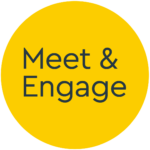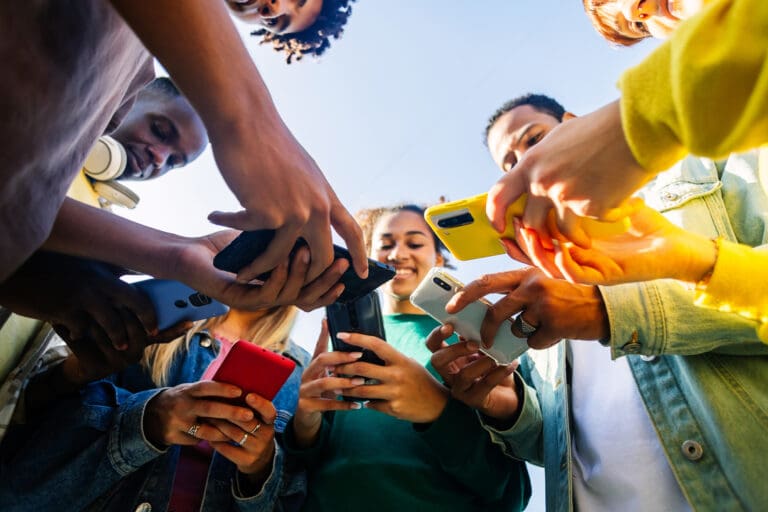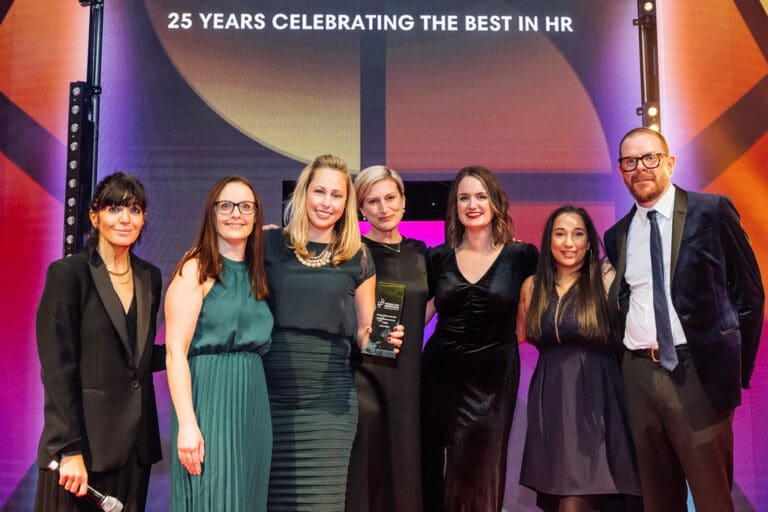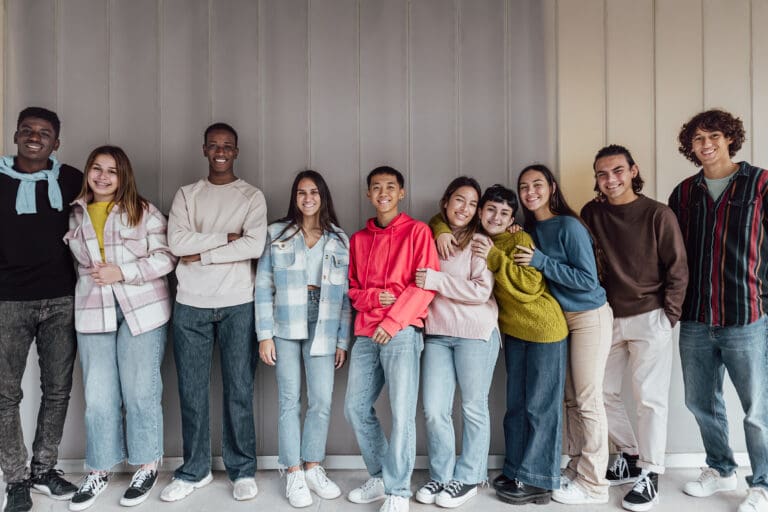Supporting students to be their best
With more employers than ever turning to digital engagement, we felt compelled to address its impact on students, particularly those from lower socio-economic backgrounds so that employers can better understand the challenges they face.
Belonging and Inclusion Lead Jodie Grove hosted a Q&A with Lazard’s Graduate Recruitment specialist Tracey Abayeta, James Akinyemi, currently on the graduate scheme at St. James’s Place Wealth Management, and Employer branding expert, Steve Keith, The Branding Man.
Sharing their personal and professional insights, our panel discussed how employers can better connect with students from all walks of life and support them to be their best throughout their recruitment journey.
Here are some of the key questions our panel discussed. You can watch the full recording here.
How has the increased use of digital engagement impacted students, especially those from lower socio-economic backgrounds?
On the whole, our panel agreed that there’s a lot to celebrate. Despite the challenges brought about by Covid-19, the move from physical to digital candidate engagement encouraged by remote working regulations has allowed recruitment teams to broaden their reach and gain exposure with students from a diverse range of backgrounds.
Alongside her role at Lazard, Tracey is also the founder of Opportunity Central which seeks to support students from underrepresented backgrounds by boosting their awareness of career opportunities.
Drawing upon her recent conversations with Sixth form students, Tracey described their – “sense of relief” – at no longer feeling – “excluded” – from events due to travel commitments.
Tracey went onto discuss Lazard’s Spring Board programme and how virtual engagement has opened up an avenue for creativity:
“When we did our spring program, we had to pivot that to a fully virtual program. We had people participating as far as Singapore, all over the world – I think there’s a lot of opportunity that firms have and they can be creative about how they are reaching out to broader pools of students.”
With over 10 years’ experience in recruitment, ex teacher turned employer branding expert, Steve Keith highlighted the importance of embracing chance.
Steve explained, “The organisations that have taken advantage have been the ones that have been flexible and maybe have had conversations internally with stakeholders that have been willing to actually grasp this as an opportunity.”
Whilst online engagement brings opportunity, employers also need to be mindful of the challenges this medium can bring.
From sharing one device per household to knowing how to present yourself on a video call, students are not just facing barriers in the physical world but the virtual world too.
Recent graduate and mentor James Akinyemi shared his thoughts:
“A lot of students coming from lower socioeconomic backgrounds don’t necessarily have that confidence to advertise themselves. There’s a lot of internal doubt. They think they’re not suitable for certain role.”
James expanded; ““Video interviews were always something that was a daunting process for me and I’m sure that’s similar across a lot of other students that were applying for roles.”
These comments highlight the importance of building the confidence of prospective candidates so that they feel able to apply and succeed.
At Meet & Engage, many of our early careers clients such as Arup, Chivas Brothers and Bank of England to name a few host online group chat sessions prior to a video interview to give candidates the opportunity to ask questions, seek support and boost their confidence.
To ensure candidates have every opportunity to attend, several clients repeat these sessions so that candidates have access to the information they need to perform at their best. Clients typically see a huge improvement in an attendee’s performance due to being better prepared.
Are companies seeing digital engagement as an opportunity to reach a wider pool of candidates?
Our panel agreed that organisations are seeing the digital tools that they’ve had to deploy as an opportunity to extend their reach.
With time zone and location no longer being a barrier, Tracey highlighted the value of engaging candidates globally and how it can be an easy way to connect your current talent to future talent.
“It’s a great opportunity to have a wider range of your people involved. If you are a global organization, you may have some great people in the US that could actually be great role models and really inspiring to a particular group of people elsewhere.“
For Steve, digital engagement has also presented employers with an opportunity “to build trust and a relationship with a candidate”.
Do you think online engagement would have had much of an impact for you?
To understand things from a graduate’s perspective, Jodie asked James whether more online engagement would have made a difference during the application stage. James shared:
“I think that a lot of students are eager to build their brand and better themselves in order to become more attractive to recruit. A lot of students have recently lost graduate roles or offers that they received earlier on in the year – if there’s still opportunities to learn about other brands and what other companies are doing, it would only make sense to jump in.”
Following on this from this, Jodie asked James if employers should be using digital engagement as an opportunity to give back.
James explained, “Now it’s more of a humanity piece, I’m considering what people are going through. It’s a good time to give back and educate, especially students, about just the intricacies of working in the different industries we may be working within, not necessarily all about technical skills but having soft skills in communication, negotiation, understanding how to use different office tools as well.”
Steve added his thoughts:
“I think it’s a big time for transparency and honesty.”
Steve continued, “The more that employers can be doing and, in my opinion, should be doing to develop those skills and work in partnership with careers leaders in schools, the better.”
It’s certainly something we’re seeing our clients deploy. Nationwide host weekly CV and Interview skills workshops using Meet & Engage Group Chat and others such as Amazon have hosted Live Streamed sessions around remote working tips and preparing for virtual interviews.
Do you think businesses should be opening up to talk to teachers and parents more about opportunities and apprenticeships versus going to university?
Tracey strongly agreed, “Being able to engage parents I think will always be helpful”. As a mother herself, Tracey explained that attending physical events whilst working full-time can be a challenge and so, virtual events can be a more convenient option.
“If I’m in the middle of making dinner, I might be able to hop onto this information call that will be able to just give me a bit more insight in terms of what my son is thinking for his future”.
From her work with young people, Tracey also talked about the pressure students feel to perform well and the importance of reassuring them that “A-levels do not determine your future”.
Tracey went onto say; “I think in this environment, organizations should be making sure that you’re leveraging your people, giving relatable mentors to young people, getting them in front of the audiences you’re trying to reach.”
Based on attendance feedback and research from Bright Network, our clients know that candidates appreciate the opportunity to speak to someone of a similar background who has experienced the same things.
Tracey supports this:
“Some of the greatest events is just somebody that knows what it’s like to be like me, doing my A-Levels, maybe I don’t have any idea what I want to do, they can give you practical advice and share their insights. Those authentic conversations are probably more valuable than that immersive, technology savvy, simulation event that you’re trying to recreate for the purposes of a virtual event.”
James added, “the emphasis should be put more on employers thinking about how to create opportunities to learn”.
Capgemini have hosted Meet & Engage Group chats for parents and teachers so that they can be better informed to support young people.
Are Virtual Internships the way forward?
With so many organisations having to change direction with their internship programmes, we were keen to understand this transition from an employer’s perspective.
Tracey explained, for Lazard, it was important to keep the ‘substance’ and ‘objective’ the same, “the business world had to adapt to working remotely” and so things are ‘no different’ for interns.
“We wanted candidates to get authentic exposure to our business, our people. It’s much shorter, but actually we were able to deliver that. They didn’t go into the office, but they were an integrated member of the team, remote working member of the team and it worked. I think this is why being able to adapt and pivot very quickly is important.“
Along with Lazard, countless organisations have proved that it is possible to deliver an engaging programme online but Steve raised an important point around ensuring support networks are in place.
“Young people struggle with the transition from education into the workplace, particularly when they’re from a disadvantaged background. The support is absolutely critical and it’s very easy in a digital space to hide or if you’re not used to saying, ‘I need help’, or, ‘I don’t know what I’m doing’, then you can just kind of fade into the background.”
Whether it’s daily check-ins through Slack or regular video calls, keeping in touch so that interns feel connected, valued and appreciated matters now more than ever. In a recent blog, we share some simple and effective ways for maintaining contact with candidates.
How do brands ensure that the people who are joining have the same experience as those who have been through the traditional face-to-face process?
We all know what makes a good onboarding experience in the physical world – a tour of the office, a bite to eat or perhaps a drink after your new joiner’s first day, but employers are now having to think outside the box to maintain and deliver a great experience.
Steve’s top tip was to focus on ‘moments of communication’ and make a lasting impact, it could be scheduling a virtual coffee for instance but, “digital has an informal feel to it” – so don’t be afraid to make things informal.
Today’s students may have grown up with FaceTime and video calls, but Tracey explained that they can become ‘scary’ once a label is applied.
James expanded on this;
“A lot of graduates, especially coming out of university, have a perspective of what the working world and professionalism looks like – I think it’s important that as we are redefining what online engagement looks like, we shouldn’t be too quick to remove human connection.”
So, the key is to use virtual engagement technology to build meaningful conversations and keep things human so that your new joiners feel connected to you and your organisation.
Conclusion
To sum up, the takeaways from our discussion were; Take the time to understand the barriers and concerns facing students, be authentic and show understanding, utilise your current talent and embrace change, rather than fear it.
If you’d like to find out more about our suite of conversational recruiting technology feel free to get in touch with Jodie at jodie.grove@meetandengage.com or book a demo






